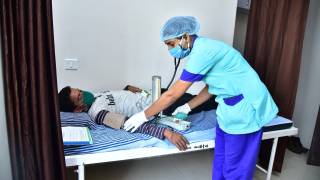USA Authorizes First COVID-19 Vaccine

The U.S. Food and Drug Administration (FDA) issued the first emergency use authorization (EUA) for a vaccine for the prevention of COVID-19) in individuals 16 years of age and older.
This EUA enables the experimental Pfizer-BioNTech COVID-19 Vaccine (BNT162b2) to be distributed effectively in the USA.
“While not an FDA approval, today’s emergency use authorization of the Pfizer-BioNTech COVID-19 Vaccine holds the promise to alter the course of this pandemic in the United States,” stated Peter Marks, M.D., Ph.D., Director of the FDA’s Center for Biologics Evaluation and Research.
The FDA has determined that Pfizer-BioNTech COVID-19 Vaccine may be effective in preventing COVID-19. The data also support that the known and potential benefits outweigh the known and potential risks, supporting the vaccine’s use in millions of people 16 years of age and older, including healthy individuals.
In making this determination, the FDA can assure the public and the medical community that it has conducted a thorough evaluation of the available safety, effectiveness, and manufacturing quality information.
“The FDA’s authorization for emergency use of the first COVID-19 vaccine is a significant milestone in battling this devastating pandemic that has affected so many families in the United States and around the world,” said FDA Commissioner Stephen M. Hahn, M.D., in a press statement.
“Today’s action follows the tireless work to develop a new vaccine to prevent this novel, serious, and life-threatening disease in an expedited timeframe after its emergence is a true testament to scientific innovation and public-private collaboration worldwide.”
The Pfizer-BioNTech COVID-19 Vaccine contains messenger RNA (mRNA), the genetic material, and the first mRNA vaccine authorized by the FDA.
This vaccine contains a small piece of the SARS-CoV-2 virus’s mRNA that instructs cells in the body to make the virus’s distinctive “spike” protein. When a person receives this vaccine, their body produces copies of the spike protein, which does not cause disease but triggers the immune system to learn to react defensively, producing an immune response against SARS-CoV-2, the betacoronavirus that causes COVID-19.
COVID-19 mRNA vaccines are given in the upper arm muscle. Once the instructions (mRNA) are inside the muscle cells, they use them to make the protein piece. After the protein piece is made, the cell breaks down the instructions and gets rid of them, says the U.S. CDC.
Next, the cell displays the protein piece on its surface. Our immune systems recognize that the protein doesn’t belong there and begin building an immune response and making antibodies, like what happens in natural infection against COVID-19.
At the end of this process, human bodies have learned how to protect themselves against future infection.
Pfizer BioNTech COVID-19 Vaccine is administered as a series of 2-doses, three weeks apart. The most commonly reported side effects, which typically lasted several days, were pain at the injection site, tiredness, headache, muscle pain, chills, joint pain, and fever.
Of note, more people experienced these side effects after the second dose than after the first dose, so vaccination providers and recipients need to expect that there may be some side effects after either dose, but even more so after the second dose.
For example, the UK’s National Health Service has confirmed (3) allergic reactions reported by healthcare workers during this vaccine's launch week.
Pfizer Inc. and vaccination providers must report the following to the Vaccine Adverse Event Reporting System (VAERS) for Pfizer-BioNTech COVID-19 Vaccine: all vaccine administration errors, serious adverse events, cases of Multisystem Inflammatory Syndrome, and cases of COVID-19 that result in hospitalization or death.
The issuance of a EUA is different than an FDA approval (licensure) of a vaccine. In determining whether to issue a EUA for a product, the FDA evaluates the available evidence and assesses any known or potential risks and any known or potential benefits. If the benefit-risk assessment is favorable, the product is made available during the emergency.
Once a manufacturer submits a EUA request for a COVID-19 vaccine to the FDA, the agency then evaluates the request. It determines whether the relevant statutory criteria are met, taking into account the totality of the scientific evidence about the vaccine available to the FDA.
The EUA will be effective until the declaration that circumstances exist justifying the authorization of the emergency use of drugs and biologics for prevention and treatment of COVID-19 is terminated. It may be revised or revoked if it is determined the EUA no longer meets the statutory criteria for issuance.
The FDA is an agency within the U.S. Department of Health and Human Services, protects the public health by assuring the safety, effectiveness, and security of human and veterinary drugs, vaccines and other biological products for human use, and medical devices.
PrecisionVaccinations publishes research-based vaccine development news.
Our Trust Standards: Medical Advisory Committee

























